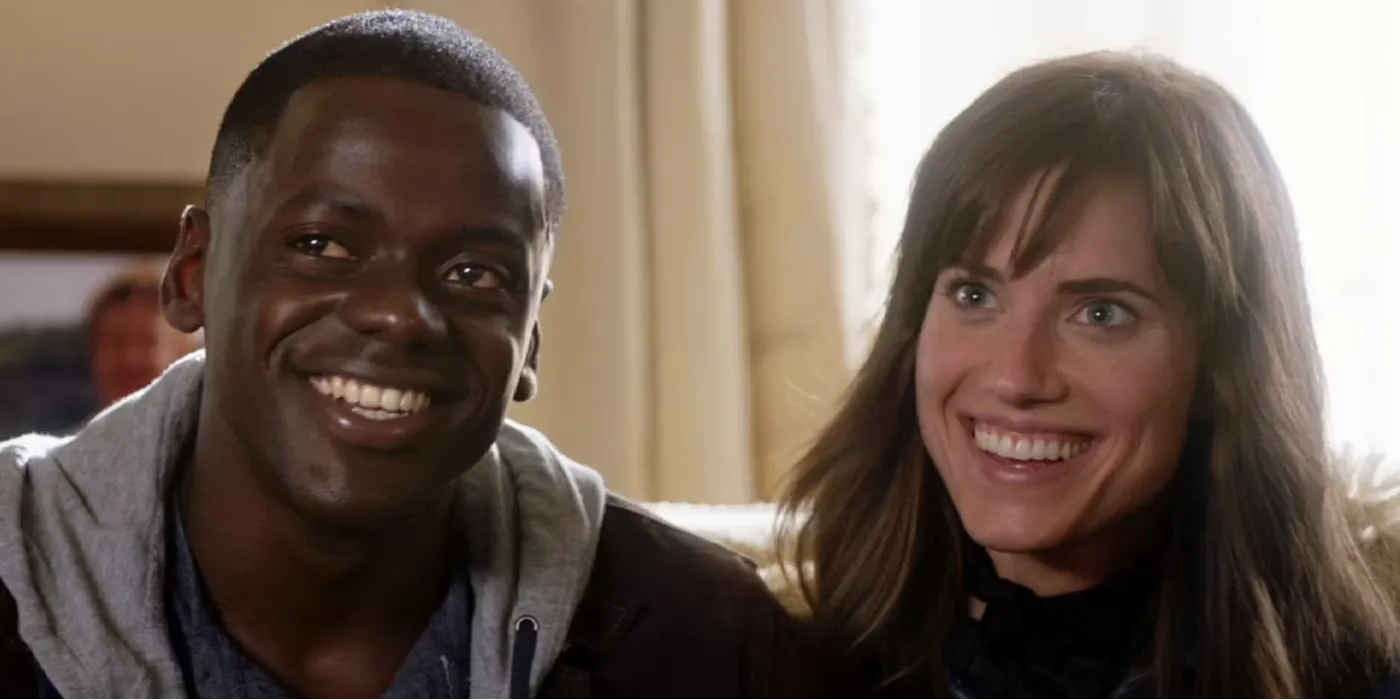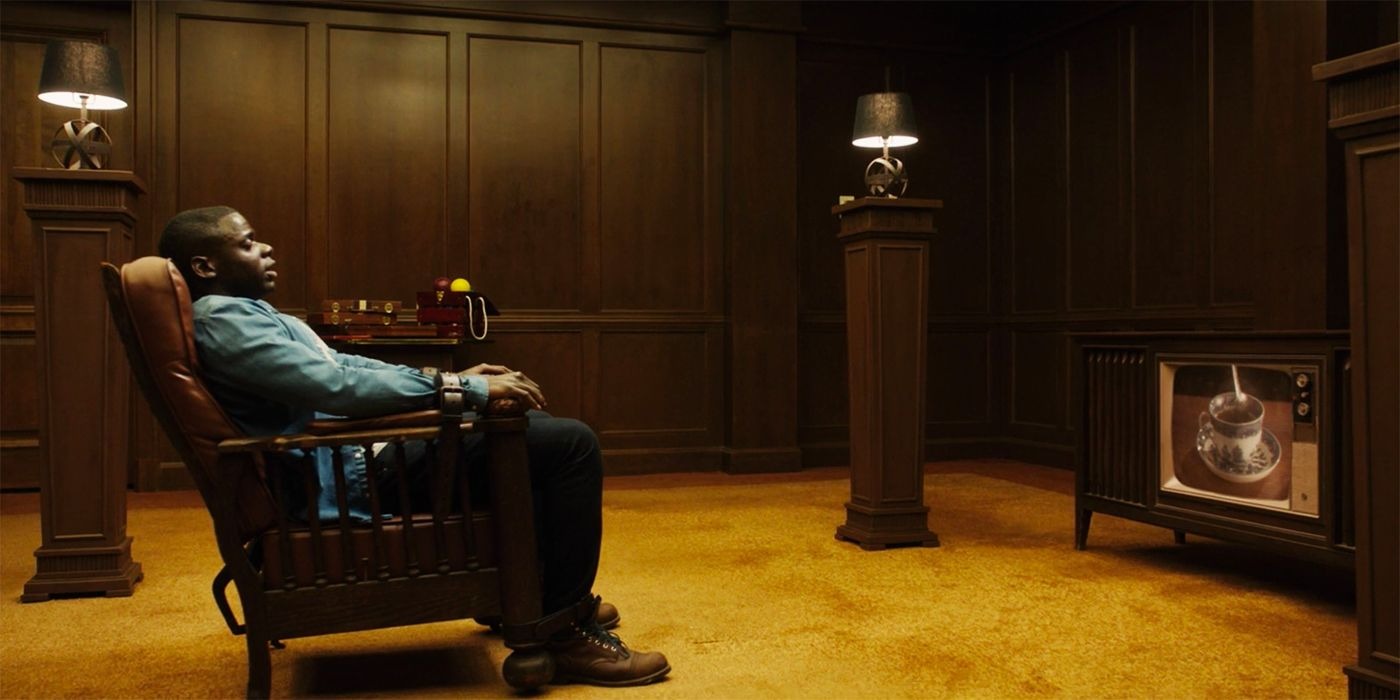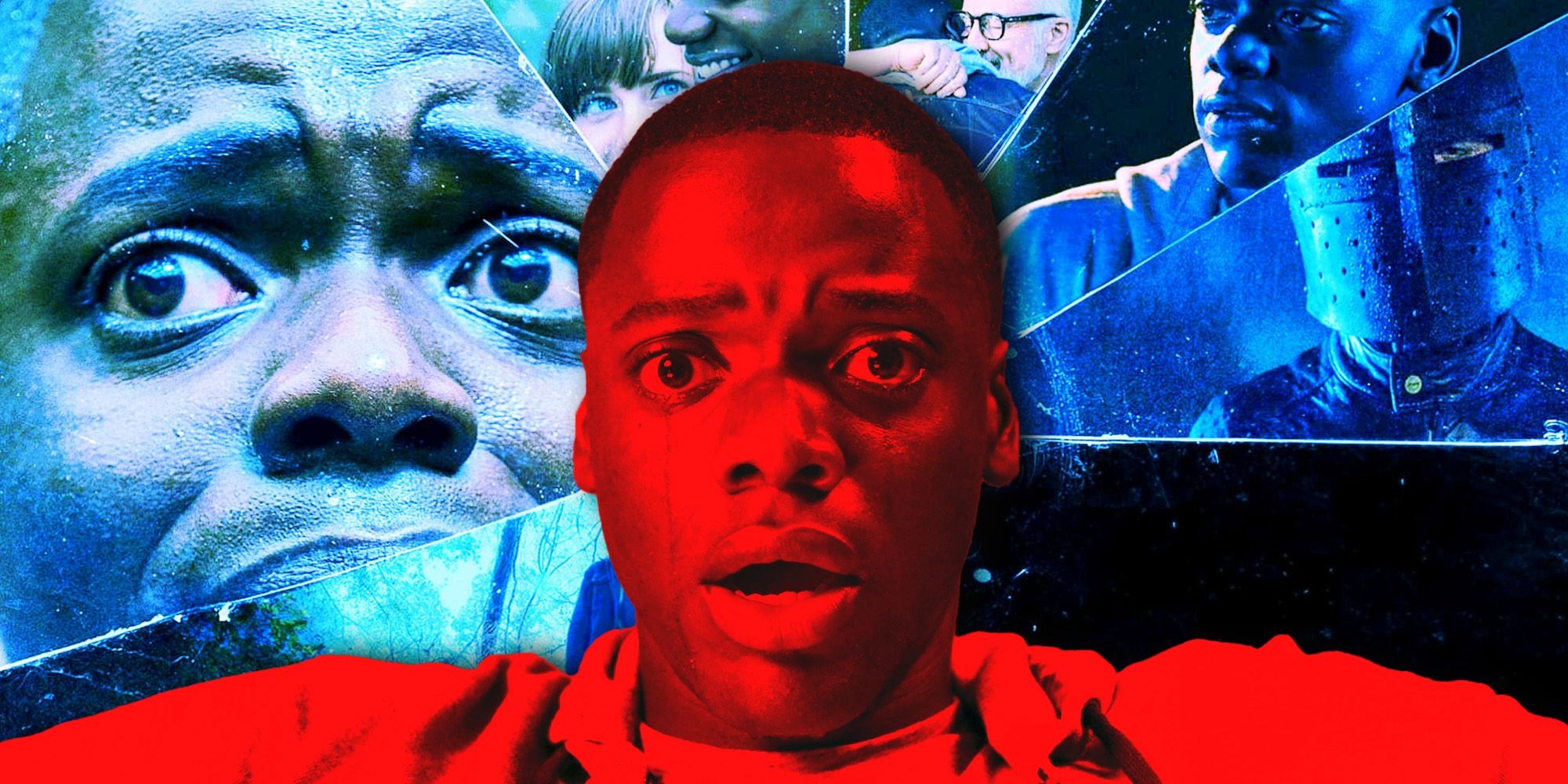From the start, Get Out puts forward a warped interpretation of Meet the Parents that focuses on racial tension in America. Chris Washington, a photographer played by Daniel Kaluuya, becomes anxious about joining his girlfriend Rose Armitage, portrayed by Allison Williams.
They were to meet her parents Dean and Missy (played by Bradley Whitford and Catherine Keener) at their luxurious property in Upstate New York. Though Rose keeps reassuring him that her parents are not racist, Chris finds himself more and more uneasy as he spends time around them.

Dean and Missy try to pass themselves off as well-meaning, but they find ways to bring up race in most discussions. Dean even goes as far as to say, “You know, I would have voted for Obama a third time.” That discomfort grows worse once Chris interacts with the family’s Black staff.
Walter the groundskeeper (Marcus Henderson) appears distant and unwilling to have any real conversation, while Georgina the housekeeper (Betty Gabriel) behaves as though she’s living in fear. His suspicion reaches a boiling point during a party hosted by the Armitages, where almost all the guests are white.
Chris has a disturbing encounter with Logan King (LaKeith Stanfield), who reacts violently after Chris takes a photo with his camera’s flash. That single moment reveals something critical—Logan is Andre Hayworth, a man who was reported missing in the film’s opening scene.
What is the Sunken Place?
After all these unsettling events, Chris begins to sense that something is seriously off. Missy, who claims she works as a psychiatrist, hypnotizes him and sends him into a state called the “Sunken Place.”
While he’s stuck in this paralyzed mental void, he realizes that it’s a tool used by the Armitage family as part of their alliance with a group called the Order of the Coagula. This secret group imprisons Black individuals mentally in the Sunken Place, rendering them powerless, while their bodies are taken over and used by others.
Rose had brought Chris home for this exact reason, letting the guests examine him like merchandise. She had used this same method with many other Black victims before him. Eventually, the Armitage family captures Chris.
Dean, who is also a surgeon, arranges for his body to be auctioned off, mimicking a historical slave market. The winner of the auction is Jim Hudson (Stephen Root), a blind art dealer who wants Chris’s eyes because of his talent in photography.
Thinking he’s trapped permanently in the Sunken Place, the Armitages are unaware that Chris had stuffed cotton—symbolically referencing America’s slavery history—into his ears to block Missy’s hypnosis cues.
With that trick, he regains control and manages to fight his way out, including a deadly encounter with Rose’s deranged brother Jeremy (Caleb Landry Jones).
What Happens at the End of ‘Get Out’?
Chris finds a way to escape the Armitage estate, but Rose tries to stop him and chases after him with a rifle. Walter, the groundskeeper, also gets involved—though his body is now under the control of Rose’s grandfather, Roman (Richard Herd), who was one of the Order of the Coagula’s founders.
Chris quickly remembers that a camera flash had helped Andre break free earlier, so he flashes the camera again to jolt Walter out of Roman’s grip. Walter then turns the gun on both Rose and himself.
Even though Rose is wounded and lying on the ground, Chris cannot bring himself to finish her off. Instead, he leaves her and tries to find his way back to safety.

Suddenly, Chris hears police sirens, and his heart sinks. He immediately fears the worst—that as a Black man surrounded by dead white people, including a white woman, he’ll be seen as the culprit.
Earlier in the film, a similar encounter had shown how unfairly law enforcement could treat him, as a police officer harassed him for ID when he and Rose were just driving. Back then, Rose protected him. But now, she’s part of the danger, and he’s alone.
To Chris’ relief, the sirens come from a car driven by his best friend Rod Williams (Lil Rel Howery), a TSA agent who has been following the whole ordeal from afar. Rod had been suspicious after Chris went off the grid and had pieced together the links between Andre’s disappearance and the Armitage family.
He picks up Chris and drives him away from the scene, giving him the escape he desperately needs. Even though this ending feels like a sigh of relief, Peele initially had a different finish in mind. His first draft showed Chris getting arrested by real police, unable to prove his innocence, and ending up behind bars.
Peele later changed it because he wanted Chris to have control over his outcome. It’s worth remembering that the film came out just after Donald Trump was elected president. Peele possibly wanted to offer viewers a brief moment of emotional release from the racial tension playing out in real life.
The Meaning Behind ‘Get Out’ and the Sunken Place
Every one of Jordan Peele’s films carries weighty symbolic meaning, and Get Out is no exception. The concept of the Sunken Place works as a symbol of how modern racism can still suppress Black individuals.
The liberal white characters in the movie see associating with Black people as a way to boost their status—almost like collectibles—without caring about their autonomy. The movie makes it clear that America’s racial problems did not disappear with the election of Barack Obama.
What many call “progress” is only a small piece of what’s needed. The film rejects the idea of a post-racial society, stressing that the kind of equality people speak of often benefits only those already in power while offering little to those on the receiving end of injustice.
Experience this unforgettable film from the comfort of your home now streaming on Netflix.



